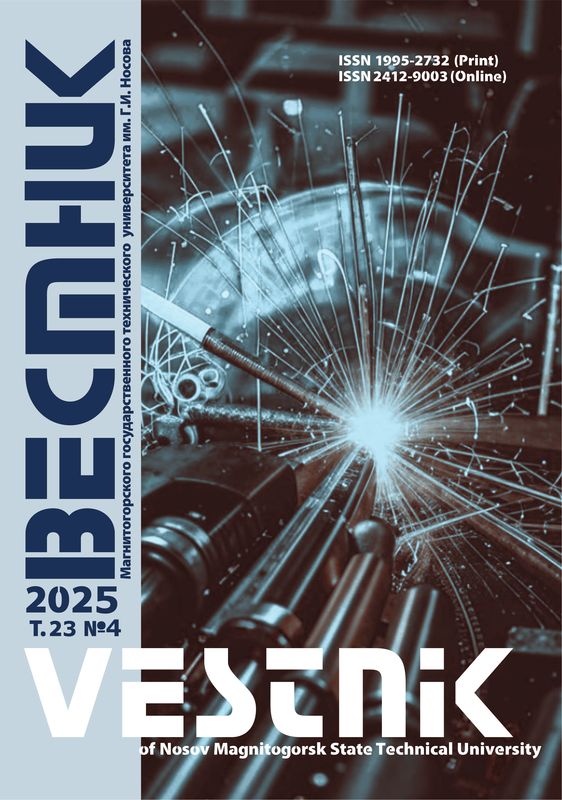DOI: 10.18503/1995-2732-2023-21-1-126-133
Abstract
The article presents a study on the difficulties associated with the introduction of new technologies, technological innovations and other new products into the activities of organizational systems, organization infrastructure and production systems. The data presented by the statistics service and the global innovation index allow us to put forward a hypothesis about the influence of the level of economic development in the region on the amount of innovation that can appear at the output of organizational systems. The hypothesis is confirmed by the results of the analysis of secondary information characterizing the general economic situation regarding expenditure on developing technological innovations and the number of personnel carrying out their professional labor functions in the field of innovation. The author has analyzed behavioral factors influencing the perception of new technologies that can be used as new platforms for creating activities within the organizational system and also considered the risks possible in the implementation of unprepared changes. To assess the readiness of the organizational system, a list was developed to present the indicators of innovative behavior for the organizational system in comparison with the stages of A. Maslow’s behavioral theory. The indicators of innovative behavior can be used as part of monitoring the level of maturity of the organizational system to assess sufficiency of the system’s potential to perceive innovations with minimum organizational costs. The presented indicators that characterize the relations between the indicators of innovative behavior and behavioral factors served as a basis for a methodological tool based on the classic tool of Total Quality Management (TQM) used for iterative control of new and stable processes, namely the Deming-Shewhart cycle. The article presents a part of the protocol. A combined application of the developed models and the presented procedure will iteratively control the readiness of the organizational system to carry out technological changes and assess the indicators of innovative behavior to maximize the preparation of the personnel of the organizational system for potential structural changes.
Keywords
organizational system, innovative behavior, maturity level, quality, behavioral models, change management
For citation
Nazarevich S.A. Indicators of Innovative Behavior Used to Monitor Readiness of the Organizational System for Changes. Vestnik Magnitogorskogo Gosudarstvennogo Tekhnicheskogo Universiteta im. G.I. Nosova [Vestnik of Nosov Magnitogorsk State Technical University]. 2023, vol. 21, no. 1, pp. 126-133. https://doi.org/10.18503/1995-2732-2023-21-1-126-133
1. GOST R ISO/IEC 15504-2-2009. Information technology (IT). Process assessment. Part 2. Assessment rocedure. Moscow: Standartinform; 2018. 20 p. (In Russ.)
2. Blagov E.Yu., Shcherban S.A. Management of organ-izational forgetting: Using Russian mechanical engineering companies as an example. Vestnik Sankt-Peterburgskogo universiteta. Menedzhment [Bulletin of Saint Petersburg University. Management]. 2019;18(2):261-287. URL: https://cyberleninka.ru/ article/n/upravlenie-organizatsionnym-zabyvaniem-na-primere-rossiyskih-mashinostroitelnyh-kompaniy (Accessed on May 31, 2022). (In Russ.)
3. Beregova G. Philosophy of education: Pragmatism-instrumentalism concept of forming the future human in higher education. Future Human Image. 2016;3(6):31-45.
4. Kluge A., Gronau N. Intentional forgetting in organizations: The importance of eliminating retrieval cues for implementing new routines. Frontiers in Psychol-ogy. 2018;9. 10.3389/fpsyg.2018.00051. URL: https://www.researchgate.net/publication/322853142_Intentional_Forgetting_in_Organizations_The_ Impor-tance_of_Eliminating_Retrieval_Cues_for_Implementing_New_Routines (Accessed on June 07, 2022)
5. Blagov E.Yu., Pleshkova A.Yu. Barriers to knowledge sharing in administrative units of higher education institutions. Kreativnaya ekonomika [Creative Economy]. 2017;11(3):285-302. (In Russ.)
6. Blagov E., Pleshkova A., Soldatkin E., Koritckiy N. Knowledge sharing barriers in the educational program management administrative processes: A case of a Bachelor program in a Russian university. Electronic Journal of Knowledge Management. 2017;15(2):113-125. (In Russ.)
7. Global Innovation Index 2021, 14th edition. URL: https://www.wipo.int/publications/ru/details.jsp?id=4560 (Accessed on May 25, 2022)
8. Nikonova Ya.I. Study on the relationship between innovation and economic growth of national economies. Nauchno-metodicheskii elektronnyi zhurnal «Kontsept» [Scientific and Methodological Electronic Journal Concept]. 2016;15: 2001-2005. URL: http://e-koncept.ru/2016/96319.htm. (In Russ.)
9. Ukhina A.V., Agafonova M.S., Polovinkin I.S. In-vestment and innovation factors of economic growth. Nauchnoe obozrenie. Ekonomicheskie nauki [Scientific Review. Economic Sciences]. 2016;(2):197-199. URL: https://science-economy.ru/ru/article/view?id= 809 (Accessed on June 07, 2022). (In Russ.)
10. Vinnichenko A.V. Drifting models for assessing the potential of technological systems and basic process-es. Modeling and situational quality control of complex systems. Proceedings of the Third All-Russian Scientific Conference. Saint Petersburg; 2022;124-128. (In Russ.)
11. Eltsov A.A. Methodology for assessing innovative projects in the radio-electronic industry. Radio electronics, electrical engineering and energy. Abstracts of the Twenty-Seventh International Scientific and Technical Conference of Students and Postgraduate Students. Moscow; 2021;563. (In Russ.)
12. Linkov A.D. Algorithm for examining potentially innovative import-substituting products of large projects. Gorizonty ekonomiki [Horizons of Economy]. 2022;(2(68)):31-37. (In Russ.)
13. Federal State Statistics Service (Rosstat). URL: https://rosstat.gov.ru/ (Accessed on June 08, 2022).
14. Batkovsky A.M., Kravchuk P.V., Fomina A.V. Organizational innovations at the enterprises of the radioelectronic industry. International Journal of Professional Science. 2020;(2):36-43. (In Russ.)
15. Trapitsyna G.N., Trapitsyn S.Yu. Determinants of innovative behavior of teachers. Problemy sovremennogo pedagogicheskogo obrazovaniya [Problems of modern pedagogical education]. 2018;(60-3): 320-325. URL: https://cyberleninka.ru/article/n/determinanty-innovatsionnogo-povedeniya-pedagogov (Accessed on June 08, 2022). (In Russ.)
16. Kalabina E.G., Berestovoy A.S. Factors of innovative behavior of an industrial enterprise employee. Vestnik ChelGU [Bulletin of Chelyabinsk State University]. 2017;(10(406)):139-146. URL: https://cyberleninka.ru/ article/n/factory-innovatsionnogo-povedeniya-rabotnika-promyshlennogo-predpriyatiya (Accessed on June 08, 2022). (In Russ.)
17. Nazarevich S.A. Behavioristic models of organizational and technological reliability. Modeling and situational quality control of complex systems. Proceedings of the Second All-Russian Scientific Conference. Saint Petersburg; 2021;143-145. (In Russ.)












